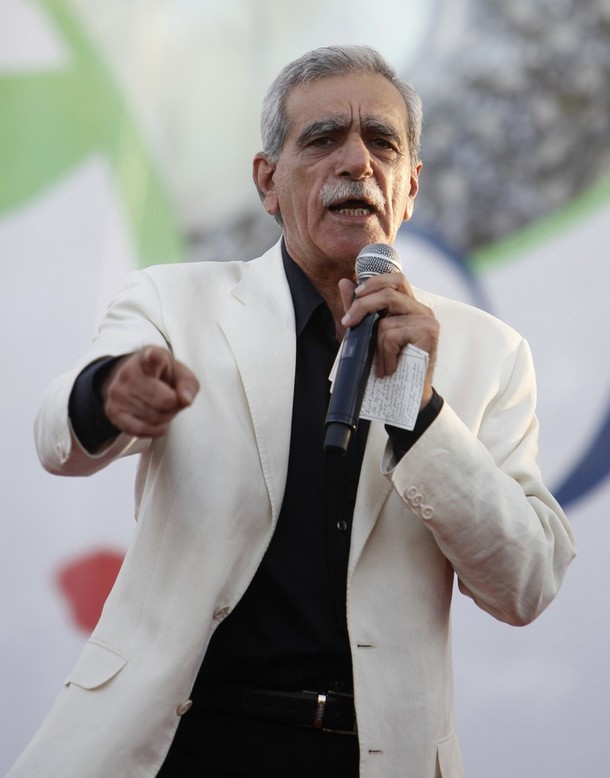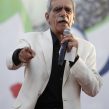
The DTP Jeopardizes the Kurdish Initiative
Publication: Eurasia Daily Monitor Volume: 6 Issue: 200
By:

Since June, the Justice and Development Party (AKP) government’s Kurdish initiative has stimulated debate on how to address the Kurdish question. After months of such debates on the issue the Kurdistan Workers’ Party (PKK)’s imprisoned leader Abdullah Ocalan, in consultation with the Turkish state apparatus, asked a group of PKK members, (a “peace group”) to return to Turkey as a gesture showing that the PKK is ready to end its campaign. Consequently, 34 PKK militants returned to Turkey and immediately afterwards, a court released them because “they have not committed any crime during their stay with the PKK.” The Kurdish nationalist Democratic Society Party (DTP) organized a welcoming gathering, in which hundreds of thousands of people participated, to welcome the PKK militants (EDM, October 20). Immediately after the “peace group” returned to Turkey the coordinator of the initiative, the Interior Minister Besir Atalay said on Tuesday that the “return home” is part of the democratization process and that there will be more good news shortly. Atalay stated that they are expecting the return of another group of between 100 to 150 people (Today’s Zaman, October 21).
When Turkish television networks broadcast the event live and showed the joy of the pro-PKK Kurds, the public immediately reacted to the development, fearing that the DTP is turning the government’s gesture to encourage the PKK militants to end the fight into a victorious return of the PKK militants. The Nationalist Action Party (MHP) leader Devlet Bahceli harshly criticized the way that the “peace group” was welcomed. “Those who were met with applause were not pilgrims returning from Mecca; nor were they Turkish expatriates who returned to their homeland after long years of hard work in foreign countries. They were not Turkish soldiers who represented their nation in other places with pride. They were treacherous terrorists, who carry the blood of thousands of innocent babies, mothers, women and martyrs on their hands and weapons,” Bahceli said (Today’s Zaman, October 21).
As a result of Bahceli’s criticism, various organizations started organizing anti-PKK rallies around the country, condemning the government’s Kurdish initiative and the attitude of the DTP. In response, President Abdullah Gul and Prime Minister Recep Tayyip Erdogan, as well as other AKP members combined with the Turkish media criticized the DTP for sabotaging the Kurdish initiative. Erdogan, for instance, harshly criticized the DTP and stated that “it is the responsibility of the DTP for turning the peace initiative into a political stand-off. They should be sincere when they talk about peace” (Bugun, October 22).
Kurdish actors have also criticized the DTP for not playing a constructive role in the Kurdish initiative. Around fifteen non-governmental organizations from the Kurdish populated city of Diyarbakir issued a press statement saying that “the DTP failed to manage the recent development, from now on the DTP should be careful about the process and play a more constructive role in the Kurdish initiative” (Taraf, October 28).
The chairman of the DTP, Ahmet Turk, argued that “the joy of the Kurds, who were gathered at welcoming ceremonies in various Kurdish cities, reflects the Kurdish people’s desire for peace.” Yet, he acknowledged that the DTP should avoid agitating the Turks and he promised that his party will act more cautiously in the future (www.nethaber.com, October 27).
To reduce the public outcry over the Kurdish initiative, both the government and the DTP have postponed taking any further steps. Following the arrival of the first group it was announced that another 15 PKK supporters from Europe, were due to arrive in Istanbul on October 28 (www.ekurd.net, October 23). However, their arrival was postponed in order to reduce the level of popular tension.
In addition to postponing the arrival of another PKK group, Atalay announced that the government planned in early November to put the Kurdish initiative to parliament. However, the DTP’s attitude [and public reaction to it] has forced the government to postpone discussing the Kurdish question in a parliamentary session (Zaman, October 30). Only the Deputy Prime Minister Bulen Arinc, an influential figure in the AKP, has maintained optimism over additional PKK militants laying down their arms and traveling to Turkey in November (NTV, October 26), while few people in the AKP now want to talk positively about the future of the Kurdish initiative.
Perhaps the irony in Ocalan’s “peace group” initiative lies in the fact that while the 34 were returning to Turkey, 55 new militants had joined the PKK. More importantly, Duran Kalkan, a member of the Kurdish National Congress, has called on Kurdish youth to join the PKK to force the Turkish government to peace (ANF News Agency, October 27).




